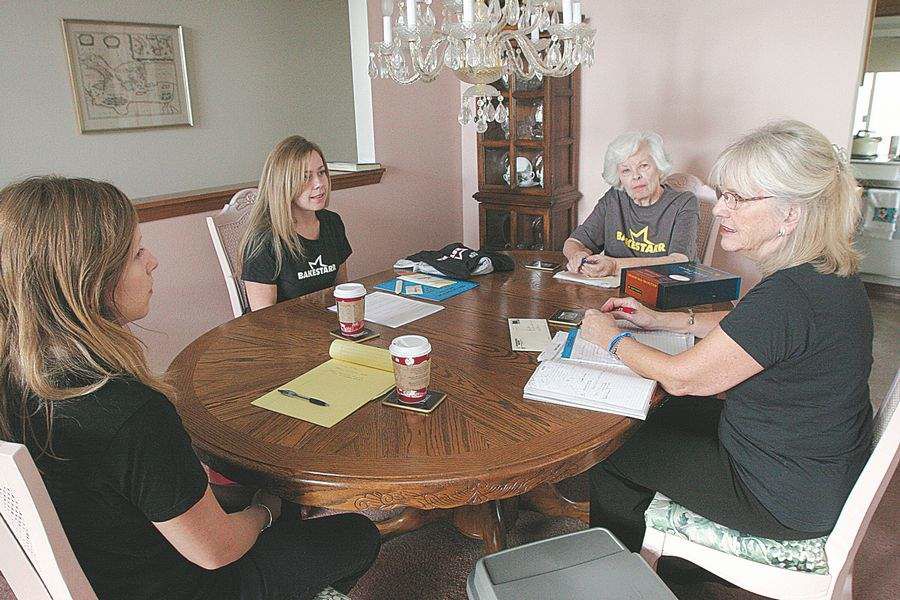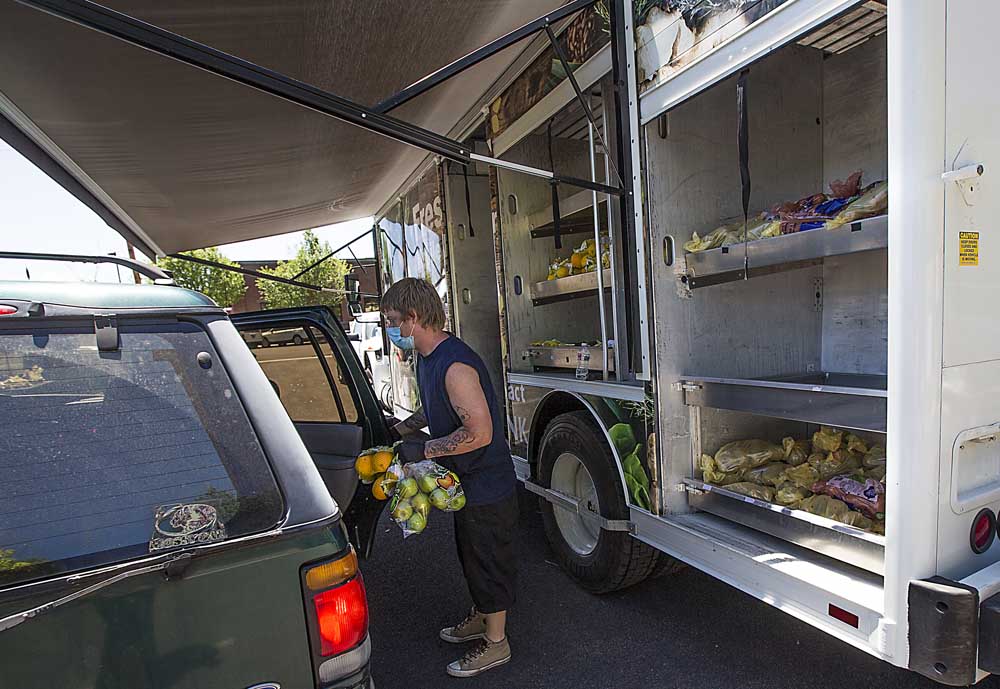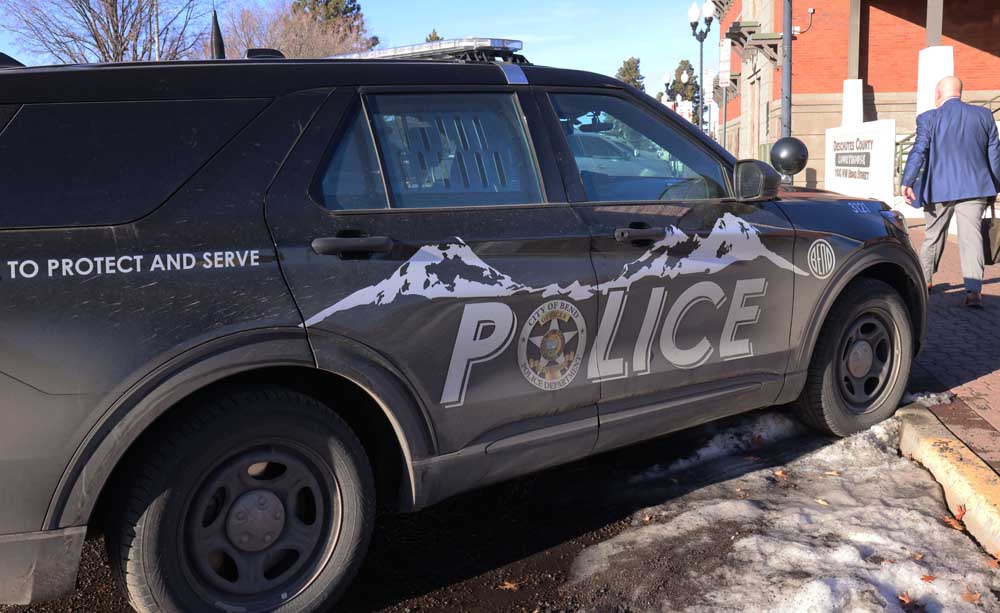Local group strives to help patients live with disease
Published 4:00 am Thursday, January 8, 2009

- Bakestarr members Claire Shanley, clockwise from left, president, Betty Patterson, board member, Nancy Baker, vice president, and Kate Piggott, treasurer, all of Bend, hold a regular Sunday afternoon meeting. The new organization aims to help young adults with Type 1 diabetes.
Brian Baker, a Mountain View High School graduate and Type 1 diabetic, took his own life at age 23 in May 2007.
His family and friends believe he was depressed. They say it went hand-in-hand with his disease and inability to cope with it. Now, they’ve started a unique organization in Bend to try to help other young adults with Type 1 diabetes and offer them resources to avoid Brian’s fate.
The organization, Bakestarr, Brian’s nickname, will begin taking clients this month. Bakestarr targets people between the ages of 18 and 24, particularly those who are low-income.
The organization will help young adults with prescriptions, medical care, nutrition, financial planning or assistance, and counseling.
Its aim is to be a one-year program to help young adults with Type 1 diabetes learn to live with their disease.
“People really need help when going from living with their parents to living on their own,” said Claire Shanley, a good friend of Brian’s and president of Bakestarr. “This transition isn’t something that they can just wing it for four years like most of their peers.”
Shanley attended college at Oregon State University with Brian. She said that, while there, he kept his insulin hidden and didn’t tell people about his disease for fear of burdening them. He lost hope, Shanley said, telling friends he didn’t think he’d live past the age of 35.
Bakestarr hopes to address two huge concerns for young adults with Type 1 diabetes, depression and finances.
Depression is more common in diabetics; one major review found it’s twice as common in people with Type 1 and Type 2 diabetes as in the whole population. Though no one is quite sure why there is a link, it is well understood that it can be dangerous. In addition to psychological issues, diabetics with depression tend to become sicker.
Patients with depression, said Dr. Mary Carroll, an endocrinologist at Bend Memorial Clinic, tend to have more problems controlling their diabetes. “When patients are depressed, they are very poorly motivated to look after their diabetes,” she said. “It’s very common that depression interferes with the ability to get control of the diabetes.”
Carroll said the problem of depression is particularly acute at the end of adolescence and in early adulthood. “This disease is very stressful for teenagers,” she said. Often, “they just want the disease to go away and don’t want to cope with it.”
Another common problem, Carroll said, is financial burden. “This is an age when they are no longer covered under their parent’s insurance. The cost of seeing a doctor, the cost of supplies to test blood sugar, insulin. It becomes a big issue.”
Those costs, she said, can lead to medical problems when diabetics stop regularly testing their blood sugar or switch to older and cheaper but less effective insulin.
For Bakestarr, “the financial piece to us is really big,” said Nancy Baker, Brian’s mother and another founder of the organization.
Bakestarr will offer its services for free and will connect clients with other area resources they can use. It already has a number of partners, including a local nutritionist, Mosaic Medical clinic and CoLINK, a free financial planning service for low-income adults.
Both Baker and Shanley said that they will be case managers, shepherding clients into services to get what they need. The goal, they said, is to take as much stress as possible off the client. “If there is something they need, we can find something for them,” said Shanley. “It has to be really easy.”
Both Baker and Shanley are big on meeting people whenever, wherever. “This is a different approach to go to them where they’re at,” said Baker. That means there’s no headquarters for the organization, though they expect to frequent coffee shops and other public meeting areas.
The fledging organization is still working out the details. The organizers hope to raise enough money to pay for specialist appointments for their clients or other things they might not be able to find for free. They plan to follow people for a year, but that may change based on individual needs. They have identified several clients already and sent out fundraising letters.
So far, things are going well, said Baker. As of last week, they had raised several thousand dollars. They have gotten a lot of interest from those who they have talked to, and apparel with the Bakestarr logo is for sale at several shops in Bend.
Maybe, Shanley speculated, Bakestarr will even be something that young Type 1 diabetics can get excited about. “It’s the hope that it will be kind of cool.”
Information about Bakestarr
www.bakestarr.com
541-598-4483
bakestarr@hotmail.com
T-shirts to support the organization are available at Pure Skate, 223 N.W. Hill St., and Showcase Hats and Apparel, 118 N.W. Minnesota Ave., both in Bend.






